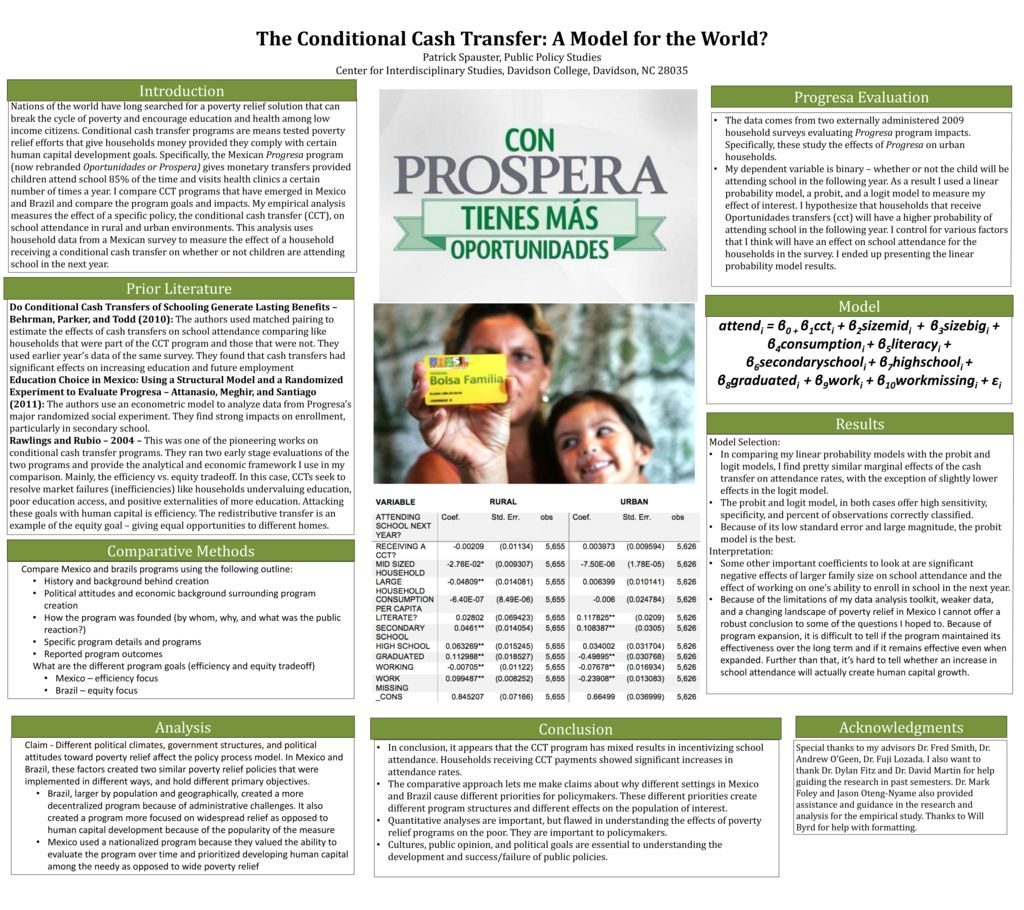The Conditional Cash Transfer:
A Policy Model for the World?
For my senior Capstone Project, I explore the development of the conditional cash transfer poverty relief policy in Latin America. Conditional cash transfers (CCTs) give cash to households on the condition that they meet certain education and health goals. In Mexico and Brazil, CCTs emphasize school attendance and health clinic visits. Despite both bearing the name CCT, Mexico and Brazil’s programs differ greatly in scope, implementation, and objectives. Using a comparative case study, I try to understand why policy might develop differently or converge. How do differences in culture, political institutions, and political attitudes toward poverty relief influence the creation public programs? What can we learn about political institutions and governments from the implementation of this public policy? Furthermore, I examine how Mexico evaluates its program over time. How do policymakers evaluate poverty relief policies and how effective are they at doing so? Do programs have disproportionate impacts on beneficiaries depending on where the household is located? I compare two CCT programs and recreate program impact evaluations in Mexico to better understand the policy process and how to make and evaluate good policy.
